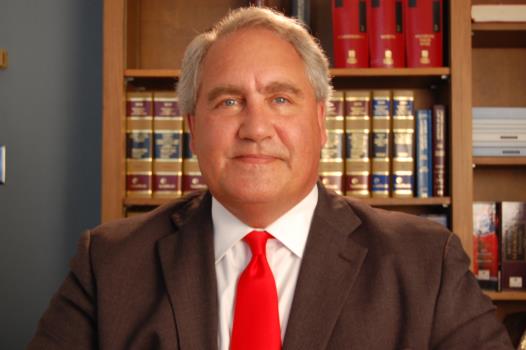
Gary Starnes
General Sessions Court Judge Gary Starnes told the Pachyderm Club on Monday that local judges are increasingly harassed and threatened. “People in power” are calling on their constituents to bother judges at their homes or in public in the company of their families.
“I’ve been threatened a lot,” Judge Starnes said. He said he has to “watch out.”
“It’s gotten that bad,” he said. Those people in power are members of Congress and other legislators, he said. Threats against the judicial system have increased by 50 percent in the last four years, he said, and the national trend has trickled down to small-town judges.
“This is fueled by all this talk about going after judges,” Judge Starnes said, judges that legislators blame for “your rotten life.”
“You used to never hear about that. Never,” he said.
“People disagree a lot, but that doesn’t mean you have to follow them around and harass them,” he said.
The stress and intensity have caused fewer people to want to run for any office, he said, which affects the whole system.
But Judge Starnes isn’t going anywhere, and he plans to run again in 2030.
“I’m going to keep doing what I can to keep our county safe,” he said. “If I’m in good health, I’ll be running again because I really love what I’m doing.”
Judge Starnes said that Hamilton County sees an acceptable 60,000 criminal cases every year.
“People aren’t fighting in the streets yet,” he said.
Moccasin Bend
The county’s veterans treatment court and mental health court help ease that load and unlock resources for those populations. But about 20 percent of Hamilton County Jail inmates have mental health issues, he said.
General Sessions Court hears cases of mental health patients who are involuntarily committed at Moccasin Bend Mental Health Institute.
“We’re inundated with it,” he said.
Moccasin Bend accepts patients from 52 of Tennessee’s 95 counties. About 2,500 patients cycle through the facility’s 150 beds annually. Moccasin Bend is one of the few remaining mental health centers in East Tennessee after most were closed under Governor Phil Bredesen’s administration, he said.
The state has yet to name a spot to relocate the 1961 facility off the archaeological park site, though $300 million has been set aside with plans for more beds.
“They’ll put it somewhere,” Judge Starnes said. “I don’t know where. I’ll just be glad when they do.”
The county’s extreme-weather security cameras help minimize criminal court backlog, too, he said. They see 360 degrees in rain, snow, sleet, hail, fog and smog.
“They’re the best thing we’ve got in this county,” he said.
Shooters can be identified within days, not months or years, and moved through the court system as quickly as possible, he said.
Veterans Treatment Court
Judge Starnes and Criminal Court Judge Boyd Patterson are co-founders of the veterans treatment court in Chattanooga, the last of Tennessee’s four big cities to get one.
After its beginnings in 2016, the court stalled out during the pandemic, but 2022 brought renewed energy and interest. In January 2025 Hamilton County Mayor Weston Wamp allocated funding for a full-time case manager for the court.
“He’s behind this 100 percent,” Judge Starnes said. The court relies on 12 to 15 volunteers, too. The court is for military veterans in the criminal court system who have not committed violent crimes.
The court is accredited by All Rise, a nationwide firm that provides training. Judge Starnes said representatives of the organization found Hamilton County’s veterans treatment court to be the most organized and energetic court ever.
“They’ve never seen anybody as prepared as we are,” Judge Starnes said.
“We’re going to try to make ours the best in the state,” he said, giving credit to Murfreesboro’s “model” facility.
Veterans have access to Veterans Affairs care for combat and non-combat post-traumatic stress disorder, and each is assigned a mentor from his or her own branch of the military, even U.S. Space Command, he said.
Mentors guide veterans to medical help, mental health help and drug treatment, but they also just listen.
“They can get vets to open up,” he said.
Judge Starnes said that new programs and funding driven by Congressman Chuck Fleischmann have cut six-month waits for treatment down to two weeks.
This article was originally published by a www.chattanoogan.com . Read the Original article here. .

